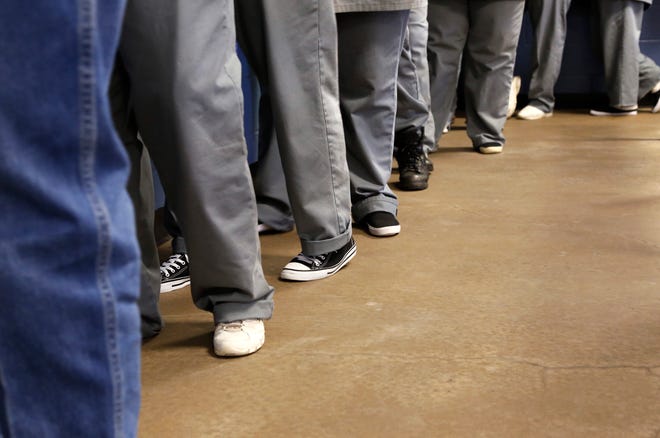
Hope, in itself, is a powerful word. But can it be the difference between life and death? To the women of Mabel Bassett Correctional Center, hope is something many of them have long been unfamiliar with. They’ve spent years ― sometimes even decades ― in a frozen state where their whole identity boils down to the single worst moment of their lives. Perpetually punished for a past they cannot change.
They will forever be known as “thief,” “drug addict” and “murderer,” instead of “wife,” “sister,” “daughter” and “mother.” Even the identity of “human being” is stripped from them. They are simply numbers, property to be manipulated as the state sees fit, and the Oklahoma Department of Corrections justifies this dehumanization of individuals as carrying out the will of good, law-abiding citizens. In other words, they are only following orders.
There are those who would say these women deserve to spend the rest of their lives beyond a razor wire fence because they committed an unforgivable offense against the people of Oklahoma; but these women are not irredeemable monsters. They are people who made bad choices. They did not spend time weighing the pros and cons of their impulses before they acted, and it is unlikely they took pleasure from the pain they caused. So, why are they being sentenced as if they are all hopelessly incapable of rehabilitation?
More:Guest: I am one of many domestic violence victims incarcerated in Oklahoma, but there’s hope
What happened to the “correction” aspects of the Department of Corrections? The majority of the women sentenced to life or life without parole in Oklahoma were either guilty of a first offense, had high adverse childhood experience scores (ACEs), were made party to the crime by a co-defendant or their cognitive decision-making was impaired due to the introduction of drugs to their system. Reform is possible, even likely, if the justice system in Oklahoma was focused on rehabilitation instead of warehousing.
The United States is an outlier in incarceration rates, with sentence lengths roughly five times longer than the international average. Over the last 20 years, the number of incarcerated people age 55 and older has increased from 48,000 to 154,000. In 2019, this age cohort accounted for 63% of deaths inside state prisons, and this aged population keeps growing. The staggering sum the residents of Oklahoma are paying in health care costs alone to keep these elderly prisoners behind bars is mind-blowing. Especially considering the fact that many experts agree people age out of crime as they get older, and that they would not pose a threat if allowed a second chance to rejoin society.
Decades after the crime was committed, are we really keeping these women behind bars because we truly believe they still pose a danger to society? Or are we keeping them there well past the age of criminal activity out of revenge? These women are well aware they do not deserve mercy or forgiveness, although they dream about one day being able to earn it. Will we, as a supposed enlightened society, ever be able to transcend traditional tough-on-crime rhetoric to extend much needed hope to those who need it most?
Crystal Avilla is serving a sentence of life without parole at Mabel Bassett Correctional Center.
This post was originally published on this site be sure to check out more of their content.






